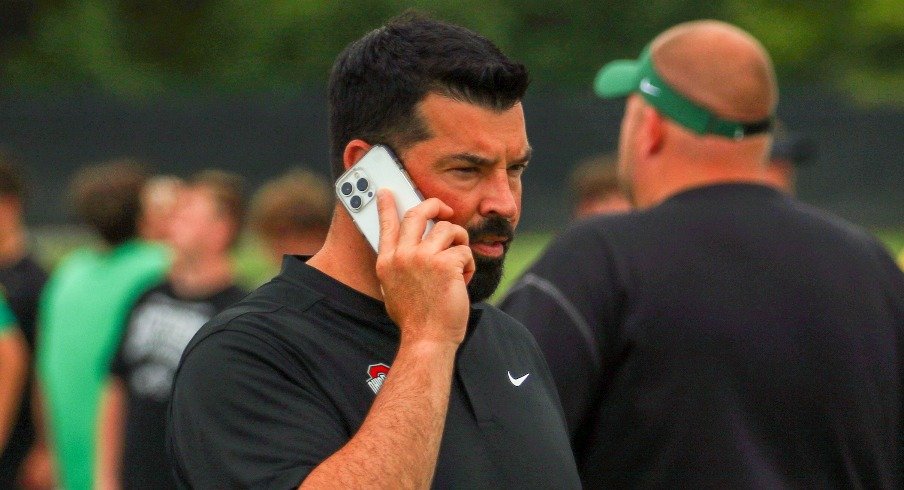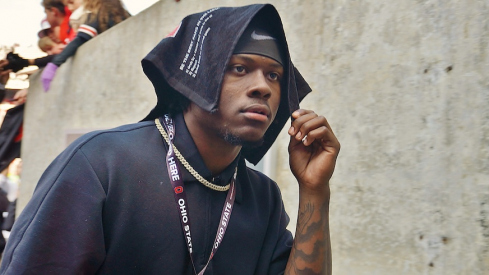At one of the desks in the staff room where I work, someone has posted a picture of Tony Stark in Avengers: Endgame.
It's from the "time heist" part of the movie, where, for about 45 minutes of a nearly six-hour epic duology about the end of the world, the Avengers team up for some wacky hijinks throughout a bunch of their past movies. It's a weird, goofy flex that's also kind of poignant, and the cherry on top is Ironman meeting his dad in the past, right before Tony is born.
Anyway, the quote at the bottom of the picture, "no amount of money ever bought a second of time", is from the conversation between the two men, and I think about that turn of phrase a lot.
Partly because in the context of the movie it makes zero sense (Tony literally creates a time machine with his many billions of dollars, enabling him to have the conversation in the first place), but also because in real life it is either an absolute truism or total garbage, depending on how much money you have and how you got it.
For instance, for your average Target cashier, or law clerk, or dishwasher repairman? Absolutely true. Regular people making a regular 9-5 wage are tied to the time constraints of their job and a billion other responsibilities in life. Their choices related to time are often "spending 10 minutes doing the dishes" and "not doing that". This is exacerbated the less money you have, and one of the cruelest ironies about being poor is that you have even less time in life to do the things that would help you get more out of it.
Conversely for the idle mega-rich, (heirs to mayonnaise empires, people who cashed out on cryptocurrency and NFT's at exactly the right time, scamps from Colorado boarding houses adopted by rich gold mine owners) time is only kind of theoretical in the immediate sense; most of the tedious tasks that eat up a day can be performed by robot butlers, leaving plenty of room for buying jetskis, riding jetskis, and thinking about buying and riding jetskis.
College football coaches don't fit into either of those categories.
Sure, some of them might be fabulously wealthy, and I would imagine many own at least one engine-propelled recreational watercraft, but the constraints on their time are absolutely insane. The popular image of a workaholic CEO sleeping under his desk while putting in 90 hour weeks might only be occasionally true (punctuated by three hour working lunches at the golf course), but I've read a little about the daily work schedule of an in-season head coach at a major college football program lately, and uh... well, check out the NCAA's "Day in the Life of Paul Chryst" back from the salad days (that's a Wisconsin joke, they don't eat salad) of 2015. Or just read this incredibly sad, highly truncated/falsified version that I've cobbled together:
| A DAY IN THE LIFE OF FORMER WISCONSIN HEAD COACH PAUL CHRYST, FOR SOME REASON | |
|---|---|
| 7:07 AM | Chryst arrives at the Wisconsin practice facility, having gotten the NCAA-mandated 45 minutes of sleep the night before. |
| 7:09 AM | Chryst offers a Mountain Dew to a visitor, calling it a "Dew" in the parlance of a very tired, very desperate man who can't be assed to grant the lemon-lime soda an extra two and a half syllables. |
| 8:01 AM | Talks with director of recruiting, who, in the year of our Lord two thousand and fifteen, suggests that he'll make a route of future recruit visits using MapQuest. |
| 8:20 AM | Chat with an NFL scout, who is probably humoring him by saying he wants to see Joel Stave in practice. |
| 8:49 AM | Chryst makes a Sudoku joke after about 20 minutes of gameplanning, suggesting he'd rather be doing literally anything else. |
| 9:51 AM | Barry Alvarez shows up to assert dominance and look over uniform designs from Under Armour. |
| 10:51 AM | Chryst finishes gameplanning. That week they'll beat a 2-6 Maryland team by a touchdown. Classic. |
| 10:57 AM | Press conference, which lasts about 20 minutes, consists mostly of injury updates and waxing poetic about the offensive line. |
| 12:30 PM | Lunch: "Sometimes I don't remember to bring leftovers," [Chryst] said. "Then I eat cashews." |
| 1:35 PM | Quarterback meeting! The NCAA timeline suggests that this lasts for over an hour, and I can't see how this is possibly the case. |
| 3:26 PM | Actual practice begins, with players Wisconsining, Chryst denigrating wide receivers for catching touchdowns, and Barry Alvarez looming over his shoulder like a Dickensian ghost. |
| 5:53 PM | Practice is over, and someone is vacuuming Chryst's office. Being the wallflower that he is, the coach takes this opportunity to drink fifteen Dews and crank some Bob Seger while watching practice film. |
| 7:28 PM | Chryst goes over plays against Maryland. This takes approximately 30 seconds. |
| 10:10 PM | After another meeting with Stave ends, Chryst meets up with some coaches to talk about the next day's practice. In mid-November in Wisconsin, the sun has been down for almost six hours at this point. |
| 11:02 PM | Chryst finally gets the hell out of there. |
College football head coaches like to wax poetic about their early days as graduate assistants, eating out of dumpsters and living in a hollow they carved out of the drywall of the weight room, but even in this seven year old historical document you can envision the kind of strain that a guy like Paul Chryst (or any other coach at a major football school) has to deal with. Over and over and over again, missives from the coaching side of the aisle emphasize just how much work and how little sleep/family time/sanity these guys actually have.
And NIL is making it tougher than ever.
I absolutely support NIL for college athletes. The athletes do work that makes universities hundreds of millions of dollars, and they deserve to be compensated for that work.
Dykes: "We had six transfers on campus this week for visits. And you're like, really? Are we really doing this? That's just the way it is now. Those were 18 hour days before and now they're 20 hour days. I'm not complaining. I can do something else, but..."
— Dan Wolken (@DanWolken) January 8, 2023
But the current model simply isn't sustainable, in large part because of the increased burden placed directly on the shoulders of head coaches. You might look at those comments from National Championship contenders and want to yell Don Draper-style "THAT'S WHAT THE MONEY IS FOR", but for everyone, even a guy who has won back-to-back national championships, there's got to be a breaking point.
The massive cost involved with keeping players committed, rumors of near-constant tampering, unscrupulous hangers-on making promises that they can't keep has to be maddening for coaches, and that doesn't even begin to factor the time commitment involved with herding these particularly mangy cats. A finite amount of hours in a week means that at some point either coaches get on Centaurian time or quit.
(As a sidenote, this is also why I'm not surprised that Jim Harbaugh's name is now a frequent fixture in NFL coaching searches during the offseason: the dude wants sleep.)
The NCAA Transformation Committee on Tuesday recommended sweeping changes that included enhanced medical benefits for athletes that are a long time coming. However, in the same document, it referred to the legal uncertainties of NIL and employment status.
"We simply need a clear, stable framework under which to address [those issues]," the committee stated in the document. "Congress is the only entity that can grant that stability."
Anyway, as implied by that CBS Sports article from Dennis Dodd, the good news is that I don't think that NIL will continue to be the Wild Jittery West for too much longer. Congress may step in and make their own changes, but what can happen in the short term to alleviate a lot of this drama is for colleges and universities to be able to take a more active hand in player compensation in a way that is above board and publicly transparent.
As (ostensibly) public institutions, there's an opportunity here to bring in money in a way that isn't just a booster moving his checks from the glovebox to the front seat. But it will require a lot of oversight, and a lot of scrupulous people invested in making something like this work without having to route everything through a head coach.
Eventually, everyone involved is going to have to take an increased amount of responsibility. That means that universities will need to offer extended, guaranteed scholarships and benefits, but it also means that it's in the best interests of players as a whole to work together for said guarantees while also honoring terms of a contract. If this thing is going to work, everyone needs to have a stake in the game.
In any event, all of this now sits at the feet of college football head coaches, which is crazy. If there's anything about NIL that means the end of major college sports, it'll be the fracturing of a profession stretched too far.


